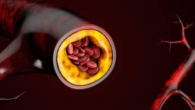
Drink and not get drunk: 4 reasons for changing the body's resistance to alcohol
0
Tolerance or sensitivity to alcohol is a condition in which a person needs more alcohol each time to achieve intoxication. This quality is produced by long-term consumption of strong drinks. However, if a person took a break, resistance can be noticeably reduced or completely lost.
Scientists distinguish four mechanisms of the development of tolerance to alcohol.
Functional
Alcohol affects the speed of reaction, the speed of signal processing by the brain. In large doses, alcohol can lead to impaired coordination, blurred vision, and the inability to express oneself clearly.
In order to develop mechanisms that prevent the appearance of these symptoms of intoxication, a person needs to regularly consume drinks that contain alcohol. However, after stopping drinking them or reducing the amount of consumption, the mechanism of resistance to alcohol weakens. Due to this, the state of intoxication can catch up earlier than it was before the break.
Environment dependent
Immunity is sometimes produced based on the environment in which consumption occurs. For example, only at home or only in a bar. Researchers believe that such tolerance is a subspecies of functional tolerance, as familiar “signals” are constantly combined with the influence of alcohol. As a result, intoxication occurs later in a familiar place than in a new environment.
Accustomed
Developing a tolerance to alcohol can depend on what we do under its influence. According to research on rats, animals trained to navigate a maze did it better in a drunk state, in contrast to those who did not consume alcohol during training.
In humans, this type of tolerance can be produced by performing habitual Igor. If a person drinks regularly while playing darts, it will be easier for them to hit the target than someone who is used to playing with a sober head.
Metabolic
The first three types of alcohol tolerance depend on the brain's reactions to its influence. The same type refers to the body's ability to quickly remove alcohol. The more often a person drinks alcohol, the more efficiently the liver removes it from the bloodstream. Thus, the feeling of intoxication passes quickly.
Tolerance to alcohol is an important factor in understanding how alcohol addiction develops. People with high tolerance more often lead to liver cirrhosis, neuropathy, pancreatitis, stomach cancer and other consequences of alcohol abuse.









Leave a Reply